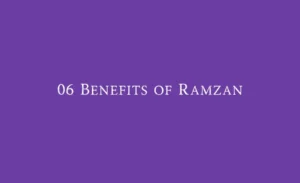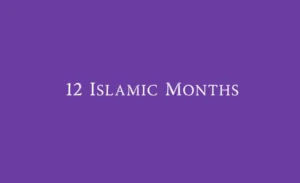Fasting in Islam, known as Sawm (صوم), refers to the practice of abstaining from certain physical needs, including food, drink, and intimate relations, from dawn until sunset during the holy month of Ramadan. This spiritual practice has a profound purpose beyond mere physical restraint. It is a time for Muslims to purify their hearts, minds, and souls, grow closer to Allah (God), and gain empathy for the less fortunate.
The act of fasting is mentioned in the Qur’an as a means of gaining spiritual strength and is meant to encourage Muslims to develop mindfulness of Allah throughout their daily lives.
The Importance of Fasting in Islam
Fasting is an essential part of Islamic life and has a deep-rooted significance:
- One of the Five Pillars of Islam: Fasting is one of the five foundational acts of worship in Islam. Along with the declaration of faith (Shahada), prayer (Salat), charity (Zakat), and pilgrimage (Hajj), fasting forms the core of Islamic devotion and discipline.
- A Time for Spiritual Reflection: Fasting is meant to help Muslims turn inward, focusing on their relationship with Allah. By fasting, Muslims aim to purify themselves spiritually, cleanse their hearts of negative traits like greed and anger, and renew their commitment to righteousness.
- A Tool for Developing Self-Discipline: By abstaining from basic physical needs, Muslims train themselves to control their desires. Fasting builds a strong sense of self-discipline and helps Muslims resist temptations, making it easier to follow the path of righteousness in their daily lives.
- Empathy for the Poor and Less Fortunate: One of the key benefits of fasting is developing empathy for those who experience hunger on a daily basis. Experiencing hunger during fasting cultivates a sense of compassion for the poor and motivates Muslims to give charity.
The Basics of Fasting: What Does It Involve?
The act of fasting is observed during the holy month of Ramadan, which is the ninth month of the Islamic lunar calendar. Muslims fast from dawn (Fajr) until sunset (Maghrib). Here’s what it entails:
- Pre-Dawn Meal (Suhoor): Before dawn, Muslims eat a pre-fast meal called suhoor. This meal is typically light and designed to provide energy throughout the day. It is important to consume foods that help sustain a person through the long hours of fasting, such as whole grains, fruits, and water.
- Abstaining from Food and Drink: From dawn until sunset, Muslims are required to abstain from eating, drinking, smoking, and engaging in sexual activity. The purpose is to exercise self-control and redirect focus away from worldly desires and distractions.
- Breaking the Fast (Iftar): At sunset, Muslims break their fast with a meal known as iftar. Traditionally, the fast is broken with dates and water, following the example set by Prophet Muhammad (PBUH), before a larger meal is enjoyed. Many Muslims also offer prayers after iftar, expressing gratitude to Allah for the strength to complete the fast.
- Night Prayers (Taraweeh): During the month of Ramadan, many Muslims also engage in additional nightly prayers called taraweeh. These prayers are not obligatory but are highly encouraged during Ramadan and help deepen the spiritual experience of the month.
Rules and Guidelines of Fasting
Fasting in Islam is governed by a set of clear rules and guidelines. Below are the key points:
Who is Obligated to Fast?
- Adult Muslims: Every adult Muslim who has reached the age of maturity (baligh) is required to fast.
- Exemptions: Certain individuals are exempt from fasting, including:
- Children: Those who have not yet reached puberty.
- Sick or Elderly: People who are ill or elderly and find it difficult to fast can be exempt or allowed to make up the fast later, if possible.
- Pregnant or Nursing Women: Women who are pregnant or breastfeeding can be exempt if fasting may harm their health or the health of the baby. They can make up for the fast later or provide food to the poor as compensation.
- Travelers: Muslims who are traveling long distances can also postpone their fast and make it up later.
What Breaks the Fast?
The following actions break the fast:
- Eating and drinking: Any food or liquid consumed during fasting hours invalidates the fast.
- Sexual relations: Engaging in sexual intercourse during fasting hours also breaks the fast.
- Intentional Vomiting: If someone intentionally vomits, the fast is broken.
However, if someone forgets they are fasting and eats or drinks by accident, their fast is not broken, and they should continue fasting.
Making Up Missed Fasts:
If fasting is missed due to illness, pregnancy, travel, or another valid reason, the missed fasts should be made up later. This is known as qada.
Special Considerations During Ramadan:
Ramadan fasting is not just about refraining from food and drink. Muslims are also encouraged to refrain from sinful behavior, such as lying, gossiping, and anger. This makes the fast a more holistic process, where the goal is not just physical abstention but also spiritual and ethical cleansing.
The Spiritual Benefits of Fasting
Fasting in Islam is not just a physical act but a spiritual journey that brings numerous benefits:
- Closeness to Allah: Fasting increases a Muslim’s connection with Allah. During Ramadan, the increased act of worship, including prayer, recitation of the Qur’an, and seeking forgiveness, helps Muslims to deepen their faith.
- Spiritual Purification: Fasting purifies the soul by removing distractions and focusing the mind on the worship of Allah. It’s an opportunity to renew one’s commitment to Islam, seeking repentance for past sins.
- Empathy and Charity: As mentioned earlier, fasting fosters empathy for those who are less fortunate. This connection to the poor and needy encourages greater charity during Ramadan, such as the giving of Zakat (obligatory charity) and voluntary donations (sadaqah).
- Increased Patience: Fasting teaches patience and perseverance. The practice of going without food and drink, even when the body yearns for it, strengthens a Muslim’s ability to endure hardship and challenges in life.
- Breaking Bad Habits: Fasting provides an opportunity to break bad habits, whether it’s smoking, overeating, or indulging in negative behavior. The discipline of fasting can carry over into other areas of life, leading to healthier habits.
The Social and Community Aspects of Fasting
One of the most beautiful aspects of fasting in Islam is the sense of community it fosters. Muslims around the world fast together during Ramadan, strengthening their bonds with one another and promoting solidarity.
- Shared Experience: Regardless of where they live, Muslims worldwide experience fasting together. This shared ritual builds a sense of unity and belonging, transcending geographical, cultural, and socio-economic boundaries.
- Charity and Giving: The month of Ramadan is marked by increased charitable acts. Muslims are encouraged to be more generous, particularly toward the poor, and many provide meals for the less fortunate during iftar (breaking of the fast).
- Family and Community Gatherings: Fasting encourages family and community gatherings. The suhoor and iftar meals often bring families and friends together, strengthening the bonds between them.
Fasting in Islam: A Path to Self-Discipline and Divine Connection
Fasting in Islam is far more than simply abstaining from food and drink, it is a time for Muslims to cleanse their souls, grow spiritually, and improve their relationship with Allah. It is an opportunity for self-discipline, empathy, and reflection, bringing Muslims closer to their faith and fellow human beings.
As one of the Five Pillars of Islam, fasting is not just an obligation but a deeply transformative experience that enriches both the individual and the community. Through fasting, Muslims learn patience, empathy, and the importance of spiritual growth, making it a truly powerful and rewarding practice.
By understanding the purpose and benefits of fasting, Muslims can approach this sacred act with a deeper sense of devotion, reaping the rewards not only in this life but also in the hereafter.






